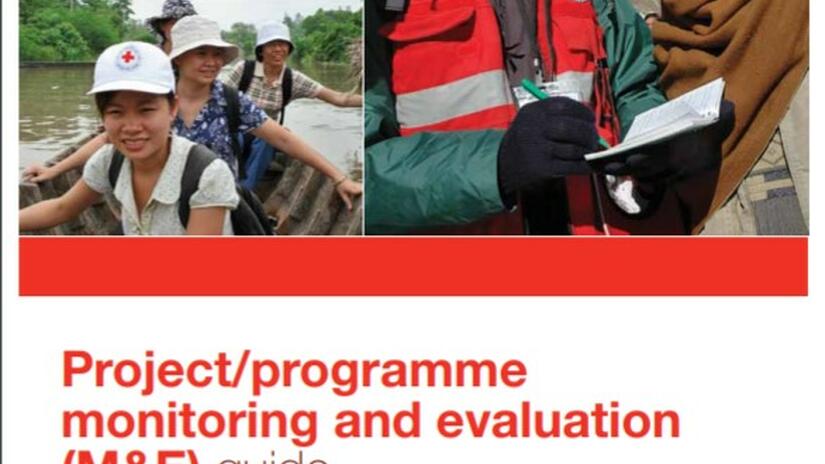
PROJECT AND PROGRAM MONITORING AND EVALUATION WORKSHOP
11th-13th February, 2026 13th-15th May, 2026
29th-31st July, 2026 16th-18th November, 2026
INTRODUCTION
Project and program Monitoring and Evaluation (M&E) are distinct but interconnected processes of systematically tracking progress and assessing performance to improve outcomes. Monitoring is an ongoing process of collecting and analyzing data to track progress against a plan, identify bottlenecks, and inform timely actions. Evaluation is a periodic, in-depth assessment of a project or program’s effectiveness, relevance, efficiency, and sustainability. Together, M&E provides accountability, improves decision-making, and facilitates learning and adaptation.
A project and program Monitoring and Evaluation (M&E) course outline typically covers the fundamentals of M&E systems, including developing M&E plans, creating indicators and frameworks like the logical framework, and collecting and analyzing data. Key
modules include the principles of M&E, performance monitoring, evaluation design and methodologies, data management and analysis, and the use and reporting of M&E findings to inform decision-making and project improvement.
Course Contents
Module 1: Introduction to Project and Program M & E
- Key Concepts: Define and differentiate between monitoring, evaluation, projects, and programs.
- The M&E Lifecycle: Understand how M&E activities integrate into
the project and program management cycle. - Purpose of M&E: Explore the importance of M&E for accountability, learning, and decision-making.
- Results-Based Management: Learn the principles of managing for results and how M&E fits into this framework.
Module 2: M & E Frameworks and Design
- Logical Framework Approach (LogFrame): Develop a project or program using a logical framework matrix.
- Theory of Change: Understand how to map out a project’s causal pathways, outlining how activities lead to desired outcomes.
- Stakeholder Analysis: Identify and analyze the different groups of people involved in and affected by a project.
- Situation and Problem Analysis: Conduct a thorough analysis to understand the context and root causes of an issue.
Module 3: M & E Planning and Indicators
- Developing an M&E Plan: Create a comprehensive M&E plan that outlines
the project’s strategy, activities, and evaluation methods. - Indicator Selection: Learn
how to design and select appropriate performance indicators for measuring
outputs, outcomes, and impact. - Baselines and Targets: Understand the importance of setting baseline
data and realistic targets for performance measurement. - Data Collection Strategy: Identify methods and tools for collecting quality
data.
Module 4: Data Collection and Management
- Qualitative and Quantitative Data: Explore various methods for gathering data, including surveys, interviews, observation, and document reviews.
- Mobile Data Collection: Learn about using modern tools and technology for
efficient data collection. - Data Quality Assurance: Understand the steps for ensuring the accuracy,
reliability, and validity of collected data. - Database Management: Learn how to manage and store M&E data effectively.
Module 5: Performance Assessment and Analysis
- Data Analysis Tools: Use software like SPSS or Stata for quantitative data analysis.
- Qualitative Data Analysis: Apply techniques for interpreting qualitative
data and identifying themes. - Interpretation of Findings: Make sense of analyzed data to identify trends,
patterns, strengths, and weaknesses. - Impact Assessment: Learn methodologies for measuring the long-term impact of a project.
Module 6: Project Evaluation
Evaluation Types: Distinguish between different types of evaluation, such as formative (mid-term), summative (end-of-project), and impact evaluations.
- Managing an Evaluation: Learn the steps involved in planning and
conducting an evaluation, including developing Terms of Reference (ToR). - Evaluation Methodologies: Explore different evaluation designs and
techniques, such as cost-benefit analysis. - Ethical Considerations: Understand the ethical principles and standards
for conducting evaluations.
Module 7: Reporting, Communication, and Learning
- Developing Evaluation Reports: Structure and write clear, concise, and
compelling evaluation reports. - Utilizing M&E Findings: Learn how to use M&E results to improve
project performance, guide strategic planning, and inform decision-making. - Communicating Results: Understand how to effectively disseminate M&E
findings to different stakeholders and audiences. - Reflective Practice: Establish
a process for continuous learning and adapting projects based on M&E
insights.
Module 8: Case Studies and Practical Application
- Real-World Examples: Study case studies from different sectors (e.g., development, health, non-profit) to see M&E principles in action.
- Practical Exercises: Apply the learned concepts and tools to a hypothetical or real-world project scenario.
- Project Development: Participants may build their own M&E components for a sample project throughout the course.
Duration: Three (3) days Fee: N250,000
Phone No:
08052062320, 08095284269, 07085271570
Email Address
training@nazellinkconsult.com info@nazellinkconsult.com
